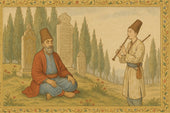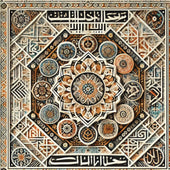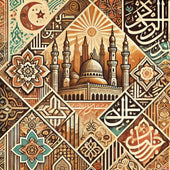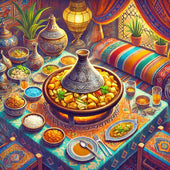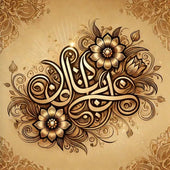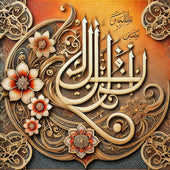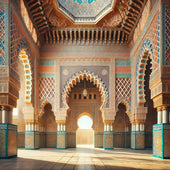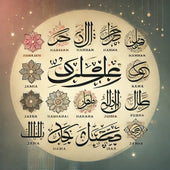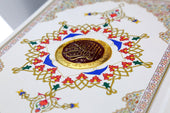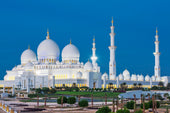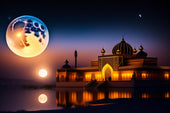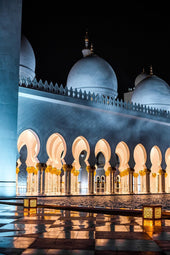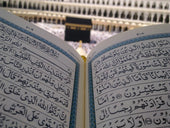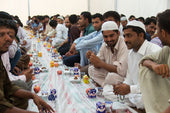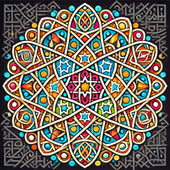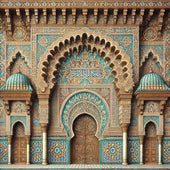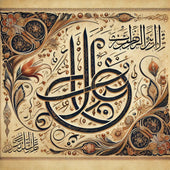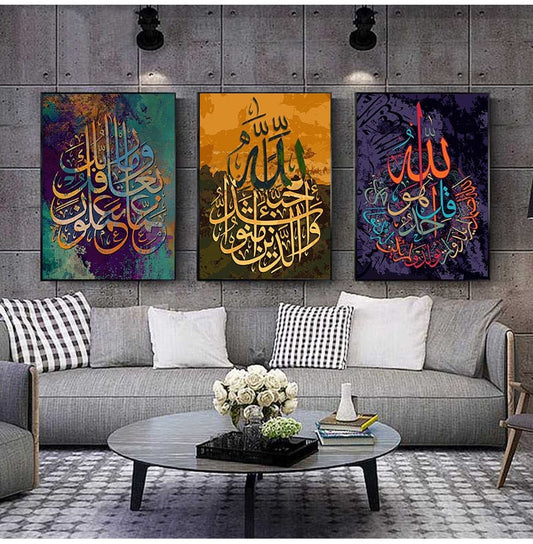The universe of Islamic spirituality is vast and deep. At the heart of this universe is a precious and omnipresent invocation: the "Bismillah". Far from being a simple religious formula, it is the reflection of a living and vibrant faith.
Origins and Context
Importance in the Quran
The "Bismillah", derived from "Bismillah-ir-Rahman-ir-Rahim", means "In the name of Allah, the Most Merciful, the Most Merciful". This invocation is inscribed at the beginning of almost every surah of the Quran, except Surah At-Tawbah. This constant repetition in the Holy Book of Islam attests to its paramount importance.
Its central place in the life of believers
From birth to death, the life of a Muslim is punctuated by the remembrance of God. The recitation of the "Bismillah" before every action, big or small, sanctifies and elevates the act. Whether eating, opening a door, speaking or beginning a journey, the "Bismillah" places the action under the sign of sacredness.
Spiritual Implications
The constancy of recall
The regular recitation of the "Bismillah" allows the believer to continually reconnect with the divine source. It is a bridge thrown between the finite and the infinite, between man and his Creator. It is a constant affirmation of the divine presence in the life of the faithful.
protection and guidance
Prophetic tradition is replete with hadiths emphasizing the merits and benefits of "Bismillah". It is said that uttering this invocation protects against negative influences and keeps the believer away from the snares of evil. It's a lifeline in the stormy sea of life.
Translation Subtleties
The untranslatable nuances
The Arabic language is renowned for its richness and depth. Thus, words like "Rahman" and "Rahim", although generally translated as "merciful", contain nuances which do not find exact equivalents in other languages. They evoke compassion, tenderness, but also the generosity and infinite benevolence of God.
Cultural and linguistic adaptations
Across centuries and continents, Muslims have adapted the "Bismillah" to their language and culture, while preserving its essence. Thus, whether it is pronounced in Istanbul, Jakarta or Dakar, it resonates with the same fervor and the same meaning.
Cultural Resonance
In music and the arts
The "Bismillah" has gone beyond the borders of the strictly religious sphere to inspire artists and poets. Whether in refined Arabic calligraphy, in traditional music or even in famous Western songs, its echo is omnipresent.
Symbol of faith and identity
Many products, from clothing to jewelry to decorative items, proudly display the "Bismillah". For those who wear or use them, it is an affirmation of their identity and their beliefs.
FAQs
1. What is the literal meaning of "Bismillah"? It translates as "In the name of Allah, the Most Merciful, the Most Merciful".
2. Why is it important to say it before each action? It serves as a constant reminder, sanctifies action, and offers protection and blessing.
3. What is the difference between "Rahman" and "Rahim"? Although both words are often translated as "merciful", "Rahman" connotes universal and general mercy, while "Rahim" suggests specific and intimate mercy.
Conclusion
The "Bismillah" is the embodiment of the Muslim faith in its simplicity and depth. It is a key that opens the door to a more intimate relationship with the divine, a beacon that guides the believer through the storms of life. By understanding its meaning, one penetrates to the heart of Islamic spirituality.



